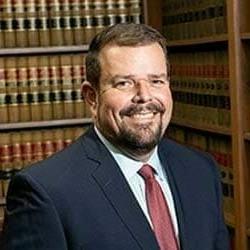
- January 19, 2022
- CLLB Law
- Estate Planning
There are several things to keep in mind when you’re asking yourself, “Is probate needed if there is a will?” In some cases, you may not be able to avoid probate altogether, but you can certainly shield some assets from having to go through probate and simplify the process of probating your will.
Only assets that the deceased person owned solely in their own name need to go through probate. All other assets pass to beneficiaries without oversight from the probate court.
For example, placing assets in a trust – such as real estate, belongings, and other valuable items – is a way to prevent these items from being part of probate. In another example, making bank accounts “payable on death” and naming beneficiaries for life insurance policies and retirement accounts is a way to avoid probating these funds. Also, setting up joint accounts where you and another person are the account owners – say, you and a spouse or an adult child – is another way of preventing these accounts from having to go through probate when you pass away.
A will in Indiana must be probated, but the probate process becomes a simple and orderly distribution of assets to heirs according to the terms of the will. Legal paperwork and filings after death are significantly less burdensome with a will than if there is no will at all.
Thankfully, a skilled and experienced estate planning attorney at Church, Langdon Lopp, and Banet law knows many ways to help you simplify or avoid probate where many of your assets are concerned. An ounce of planning is worth a pound of cure with estate planning.
To find out more about how we can help, our Jeffersonville probate lawyers, Clarksville probate attorneys as well as our probate lawyers in Corydon and New Albany are ready to give you a hand. Call 812-725-8224.
Is probate necessary?
An estate planning attorney explains ways to avoid probate.
Let’s start by defining “probate.” Probate is a legal process in which a probate court determines whether a will is valid and authentic, and then administers it. Probate also refers to the process in which the estate of someone who dies without a will is reviewed and divided among beneficiaries based on Indiana probate laws. Another word for dying without a will is dying “intestate.” If there is no will, the administrator will oversee the collection of a deceased person’s assets to pay remaining debts before beneficiaries receive their share.
Trusts and Named Beneficiaries
Two common ways of shielding assets from probate are to 1) place them in trusts, and 2) name beneficiaries in account and plan documents themselves.
Trusts
There are many kinds of trusts that could benefit your family – the most basic of which are revokable (living) trusts and irrevocable trusts. Things like real estate and other major assets can be placed in a trust, thereby avoiding the probate process and going directly to heirs when you pass away. There are also specialized trusts. Examples of these include:
- Special Needs Trust – provides for the future financial needs of a disabled child or family member
- Pet Trust – provides for beloved animals
- Funeral Trust – a trust set up with a funeral home or cemetery to prepay for funeral and burial costs
- Purpose Trust – provides for the care and maintenance of expensive toys and collectibles like antique cars, planes, and wines.
Named Beneficiaries
Many financial accounts and investment plans allow you to name a beneficiary (or more than one) who will receive the funds when you pass away, without going through probate. These accounts are often called “payable on death.” Such accounts can include:
- Checking and savings accounts
- Brokerage accounts
- Life insurance policies
- Pensions
- IRAs.
Vehicles
You can even name a “transfer on death” (TOD) beneficiary for your vehicles in Indiana. An owner does this by obtaining a certificate of title for a car or truck conveying the interest in the vehicle to one or more persons upon the owner’s death. This way, the vehicle does not have to go through probate.
Is probate needed when there is no will?
Yes, probate is needed when there is no will if the person owned assets. When someone dies without a will in Indiana, their estate is divvied up based on “intestate succession.” It’s a complicated legal term used to describe a complicated legal process. If a deceased person owned real estate, vehicles, significant belongings, and money and there is no will, then probate is required and is likely to be expensive and messy.
When is probate not necessary?
Probate is typically not necessary when a deceased person 1) had no assets, or 2) had assets but owned nothing solely in his or her own name. You can read more about Indiana’s guidance for will, trust and an estate plan.
Small Estates in Indiana
Many states, including Indiana, have a special, simplified process for what are considered “small estates.” An Indiana small estate is an estate that has a value of $50,000 or less after debts, encumbrances, liens, and funeral and burial expenses are deducted. Joint assets (co-owned with a spouse or another person) and beneficiary designations (such as those mentioned above) are not included in the $50,000 maximum estate amount to qualify for the “small estate” process. Joint assets can include things like a house co-owned by a married couple, joint bank accounts, and other property jointly owned. If an estate’s assets fall under the $50,000 level, then you will be able to take advantage of a simplified, abbreviated probate process that takes less time and costs significantly less.
All of this demonstrates that there’s a lot to know about the estate planning, elder law, and probate process – and the more you know, the better prepared you will be. Planning ahead is a tremendous gift you or a loved one can give to surviving family members. They will be able to enjoy the memories of a life well lived rather than be anxious and stressed over a disorganized estate.
Contact a skilled estate planning attorney today
If you have questions about probate, wills, trusts and estate planning in general, the attorneys at Church Langdon Lopp Banet would be glad to help. Our skilled estate planning attorneys have decades of experienced and have helped many families create unique plans that meet their individual needs. To learn more, call us at 812-725-8224.


 Licensed to practice in both Indiana and Kentucky, Steve Langdon is an experienced elder law and trial attorney. In addition to his litigation and trial work, Steve’s practice includes wills, trusts, probate, Medicaid planning, guardianship, powers of attorney, and advanced directive planning, including living wills and health care surrogate designations. [
Licensed to practice in both Indiana and Kentucky, Steve Langdon is an experienced elder law and trial attorney. In addition to his litigation and trial work, Steve’s practice includes wills, trusts, probate, Medicaid planning, guardianship, powers of attorney, and advanced directive planning, including living wills and health care surrogate designations. [